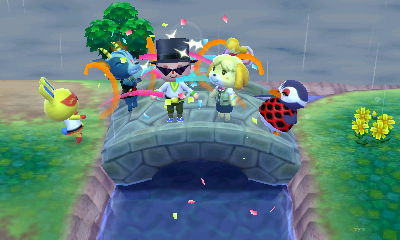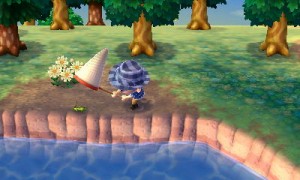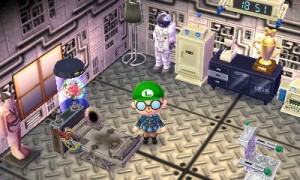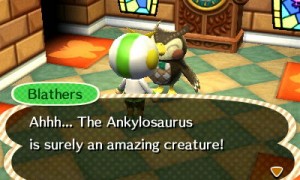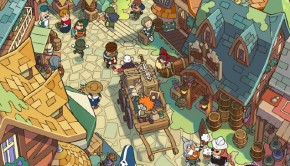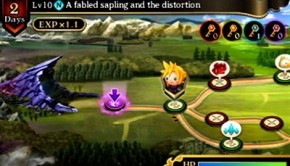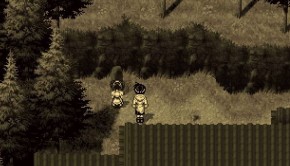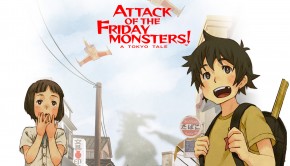The Slow Lane: Macrotransactions and Game Design in Animal Crossing
The first thing I wanted to do after moving into Qwghlm (Qwghlm is the name of my town in Animal Crossing: New Leaf, after Neal Stephenson) was to help the museum reach 100% completion. More than renovating my house, or hunting for the best fashion accessories, or making improvements to the town itself as mayor, I wanted to see every wing of that museum at peak capacity.
So I did what most people would do: hopped onto the Animal Crossing wiki and looked up a list of the bugs, fish, and deep sea life in the game to form a checklist and a plan of attack. I kept a good pace through June, taking care to at least get all the insects that wouldn’t return for a while, and once July went around, quickly made good progress toward clearing out my goals for that month too.
I got so close, in fact, that I started looking ahead. I had enough of the game’s bugs and fish that I started making a checklist of what I could expect in the months and seasons to come. And it was then that I realized that there was no avoiding the fact that I wouldn’t fulfill my task for quite some time.
I’m done fishing in the ocean for the rest of the summer, and it won’t be until November that new ocean fish arrive for me to bring to Blathers’ ready aquariums. And I’ll be waiting until March for the final new fish (the Loach, a small river fish) makes its appearance. Far from being frustrating, though, realizing this was liberating and underscored the point Animal Crossing is trying to make with every facet of its design: take your time. The town isn’t going anywhere. Go slow, have patience, and tackle your goals one small step at a time.
This approach is antithetical to not only the way most games of this nature are designed nowadays, but also how they’re monetized. Some have suggested that Nintendo should reimagine the Animal Crossing series as a freemium title, but doing so would go against the central tenet of the game. Certainly, New Leaf has as many roadblocks to “progress” as any given Farmville clone on the market today. A hypothetical Nintendo employee tasked with finding points at which to sell in-app purchases would have a wealth of choices to consider: Pay now to change the T&T Market’s stock! Pay now to seed another set of fossils throughout the town! Pay now to summon Redd for another shot at a genuine painting!
I’m convinced that the pernicious effects of that approach would be subtle but real. I say this because New Leaf is the second Animal Crossing game I’ve played, after the series’ GameCube debut in America. I abandoned that game after a week or two, after I’d traded with friends and finagled a full collection of classic emulated Nintendo games to play within my in-game home. Once I’d done that, I wasn’t much interested in anything else, because my collection was complete. I’d “won” my personal task and never settled in to the comfortable rhythms the game establishes through prolonged play.
New Leaf, by contrast, I put a good hour into every day. I spend about 15 minutes on break at work doing a sweep of my whole town, watering every flower and digging up my daily allotment of fossils. Later on, once I get home, I hit up the shops and see what’s in stock for the day, then spend some time fishing and catching bugs in case I can find anything new. (If I don’t, the time isn’t wasted, since I can still sell my catches to fund the next day’s shopping trip.) As much time is spent on maintenance as it is on “progress,” but little by little, my town and my home are improving every day.
The “little by little” element of the game is important to the atmosphere and feel. Though you play the role of mayor in both games, Animal Crossing isn’t Sim City. While one of the long-term goals is getting a “perfect town” rating by approving and funding public works projects, there’s no Cheetah speed rating in Animal Crossing because the game aims to be a Japanese garden, not a bureaucracy simulator. Player impatience often results in negative feedback and detrimental mechanical effects: though there is a run button, using it causes the grass you run on to wither and scares away the fish and insects which are your chief source of income. Trying to manipulate the system clock no longer causes Resetti to appear and deliver one of his interminable, scolding monologues (unless the player makes a dedicated effort to allow him to) but it does ruin any turnips you’ve bought to play the futures market. Hammering the A Button en route to the island location lets you skip Kapp’n’s sea shanty, but he’ll make a snippy remark.
There’s one especially clear sign to me that trying to play Animal Crossing as a game of instant gratification rather than of slow, patient, incremental progress is to miss the actual pleasures on offer. New Leaf’s vaunted social features, though extremely convenient and even indispensible in cases like Christian Nutt’s 7-Eleven exhibit, also entice the player with easy access to all the things they would normally have to wait for. You might not be able to pay a nominal fee to reseed your town’s fossil digs for the day, but you do have the option to visit a friend’s house and trade with them if you don’t want to wait for Blathers to assess something you haven’t yet seen. I made an offhand comment to someone the other day about how I was decorating my house as a laboratory of mad science, and they immediately offered to give me whatever robo furniture or other accoutrements I wanted.
It was meant as a kind gesture, but I declined anyway, still remembering the last time I played Animal Crossing as an acquisition race and how quickly the game went stale. The pleasure isn’t in having, but seeking. That thrill of going to the market every day and seeing that today they happen to be carrying something that would be just perfect in your home would be meaningless if you could pay $2.50 to buy anything you want from the catalog. The anticipation that builds when you bring a load of unidentified fossils to Blathers and hope that today he’ll assess the last piece of your diplodocus skeleton would vanish if there was an in-app purchase to try again a click away. When we pay $40 all at once for a game like Animal Crossing rather than a dollar here and a dollar there, we’re not just paying for a complete game. We’re investing in a principle that the best things come to those who wait.

